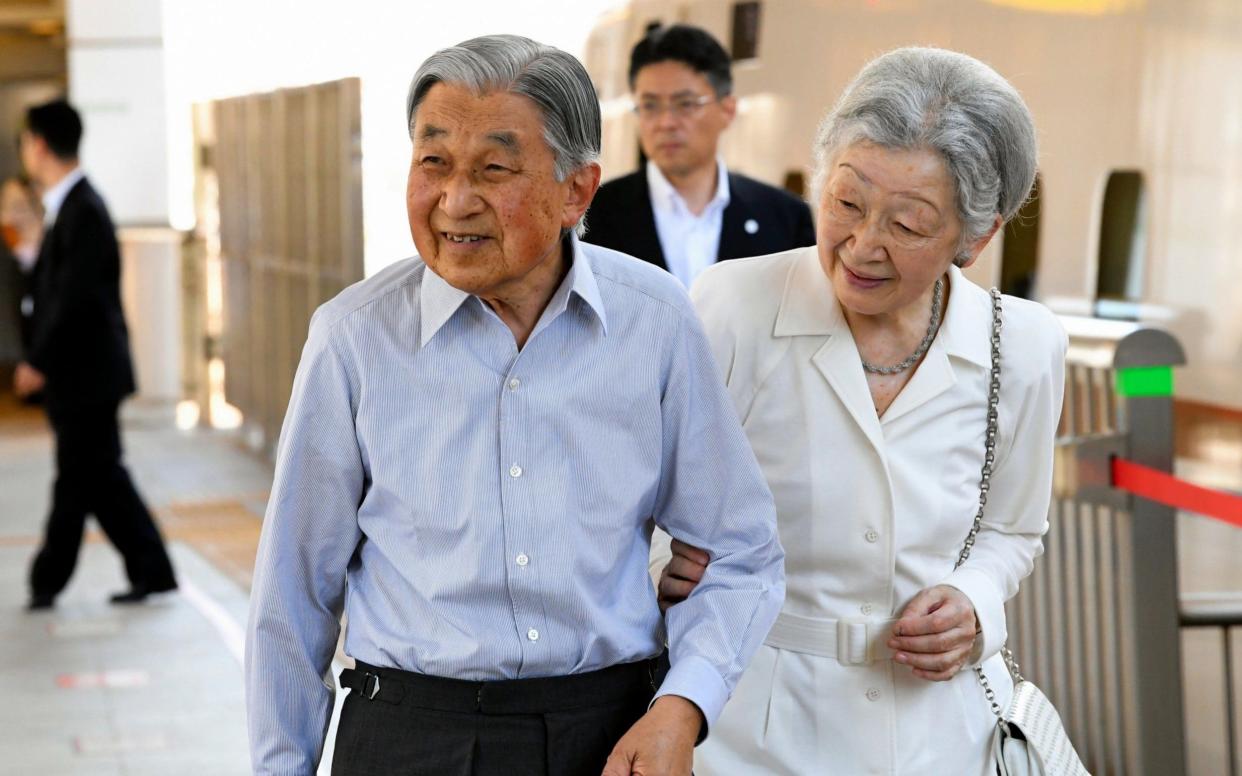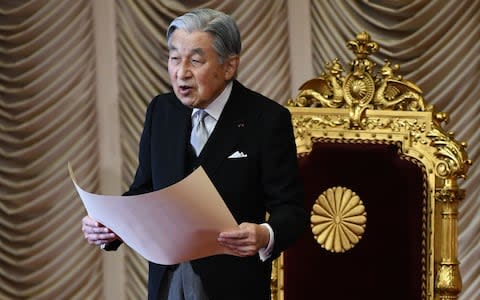Japanese government grants nation one-off ten-day holiday for royal transition

Japan will next year enjoy a rare 10-day nationwide holiday to coincide with the historic transition of power from the current emperor to his son.
Japan’s cabinet approved a new bill this week that paves the way for a series of one-off national holidays, which will collectively enable the nation to take ten days out of the office.
The holiday will coincide with Emperor Akihito, 84, abdicating after three decades in power next April 30, with his son Crown Prince Naruhito formally ascending to the throne the following day.
The transition of power will take place during the nation’s annual springtime Golden Week, with April 29 and May 3 to May 6 already assigned as nationwide public holidays.
The new bill has created one-off national holidays on April 30, May 1 and May 2, enabling the nation’s workers – perhaps more renowned for overworking than taking time off – to enjoy ten consecutive days out of the office.

The bill will also create a new one-day holiday later in the year on October 22 for the enthronement ceremony for the incoming emperor.
This is the third time since the end of the Second World War that the Japanese government has enacted special laws to create one-off holidays related to imperial celebrations, according to Kyodo news agency.
The last occasion the nation enjoyed such a one-off holiday was on June 9, 1993, when Crown Prince Naruhito married his wife Crown Princess Masako at a Shinto shrine on the grounds of the Imperial Palace in Tokyo.
Next year’s transition of power marks a significant moment in Japan’s history, with Emperor Akihito’s decision to step down due to his advanced age and ailing health resulting in the first Imperial abdication in over two centuries.
The first day of power for the incoming emperor’s will also mark the beginning of a new chapter for Japan, with an official new imperial “era” – whose name has not yet been confirmed – due to start at the same time. The current era is named the Heisei period, meaning "peace everywhere".
Japan’s emperor is a deeply respected figure in Japanese society. While the emperor does not have political powers, duties range from greeting foreign dignitaries to performing religious ceremonies.

 Yahoo News
Yahoo News 
